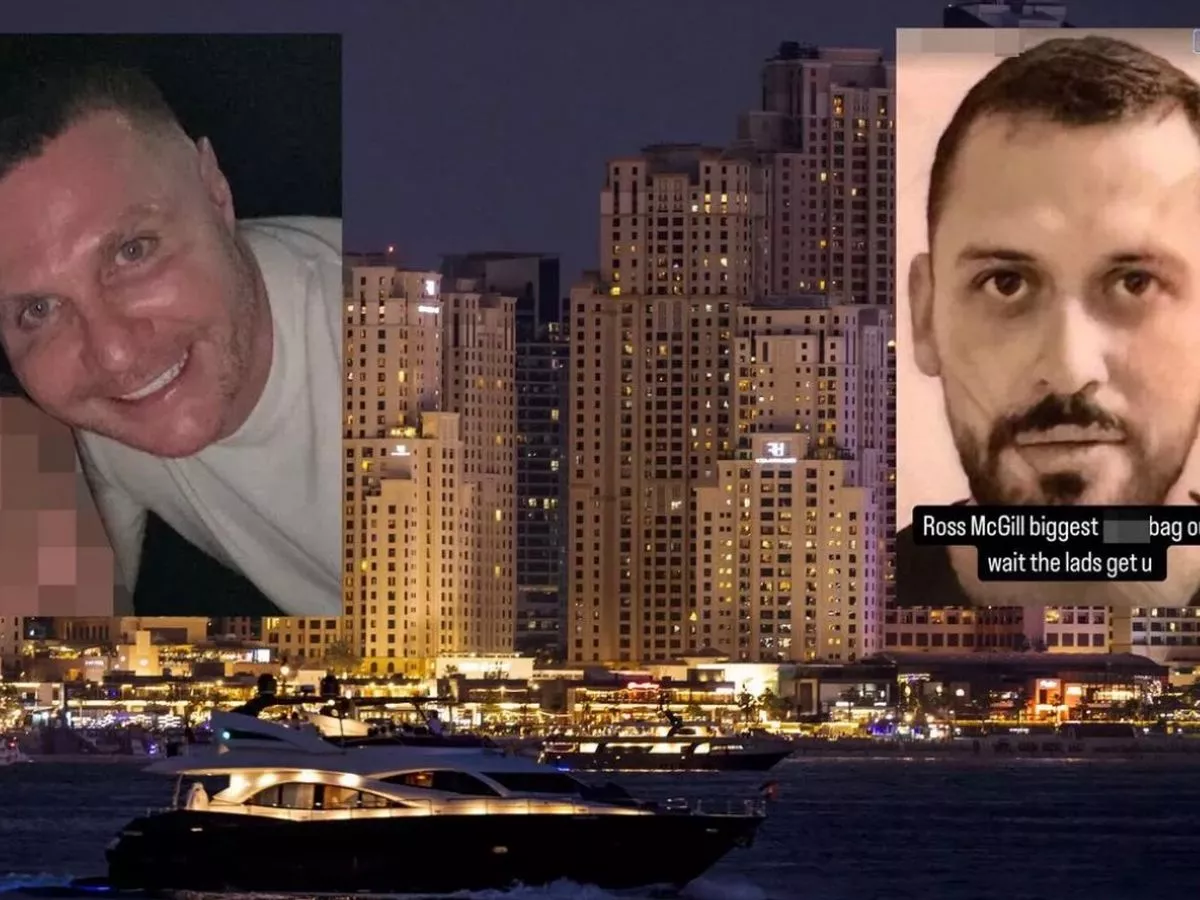By Iona Young,Richard Elias
Copyright dailyrecord

Five ‘ gangland ‘ Scots detained by authorities in Dubai could face up to two years in a prison awaiting extradition before learning their fate. Ross ‘Miami’ McGill, 31, Steven Lyons , 44, and Stephen ‘Jimmy’ Jamieson, 42, are among five men who were arrested in the early hours of Tuesday morning in a crackdown on serious and organised crime in the United Arab Emirates. One of the men arrested is understood to be Steven Larwood, a Lyons clan associate, while the other is thought to be a Rangers Ultra pal of McGill’s, as the crew were picked up in the dramatic early-morning raid. It is understood that they are suspected of being involved in serious and organised crime, however, there has not been any official word on what is behind their arrests by the British authorities yet, reports the Scottish Daily Express. Now the feared gang face up to two years in a notorious Dubai jail that is known for violence, gang rape and Russian mobsters infecting enemies with HIV while they await extradition to the UK. For years, Dubai had been considered a safe hideout by the international criminal fraternity and was considered that if a criminal was not impacting directly upon the Emirate then a blind eye would be turned. While details are not widely available, many foreigners awaiting extradition are held in in the notorious Dubai Central Prison or ‘Al Awir’ as the locals refer to it. However, recently there have been a number of high-profile successful extradition applications. According to Dubai Extradition Lawyers, crimes must meet specific criteria before an individual can be removed from the UAE. These include: * The crime must be criminally punishable in both countries; * The crime should be punishable by imprisonment for a term of not less than 1 year; * A crime must pose a threat to public safety or violate the rule of law; * The crime should not be of a political nature or imply political persecution of the person sought; * A person should not be subjected to torture or to punishment that is degrading to human dignity in the requesting country; * Capital punishment cannot be prescribed for a crime; * Extradition of its own citizens may be refused. The recent change in approach to extradition requests has been welcomed by many, there are still serious concerns over the reason for it. Among those raising doubts is human rights’ activist who runs the legal charity “Detained in Dubai”, Radha Stirling who suggests extradition is being used as a public relations’ exercise by the UAE government She said: “It wants to shed its reputation as a criminal safe haven, especially under pressure from Interpol and Western allies. But one extradition doesn’t reflect meaningful change in a legal system that remains opaque, politicised and lacking in basic due process.” “Extraditions from the UAE are rarely the result of impartial legal proceedings. More often, they are part of political or diplomatic bargaining; quid pro quo arrangements that have little to do with justice. This makes it incredibly dangerous for anyone with business disputes, political enemies, or public profiles that might make them a target. “The UAE continues to host high-profile individuals facing serious international scrutiny. Yet enforcement appears to depend not on the strength of evidence but on whether the person in question is politically and economically expendable. There is no consistency or transparency and that should deeply concern Ireland and all countries engaging in extradition treaties with the UAE.” Underworld sources told the Record it was “only a matter of time” before McGill’s growing notoriety caught up with him and everyone associated with him after a large scale gang war was on the streets of Scotland back in March. McGill is alleged to have orchestrated a series of firebombings and other attacks by a shadowy group called Tamo Junto both in Edinburgh and Glasgow since the start of March. The violence erupted after an associate of Edinburgh cocaine boss Mark Richardson allegedly bought £500,000 worth of cocaine from McGill using fake bank notes. Tamo Junto members have since been targeting individuals and properties linked to Richardson and his associates including members of the Glasgow Daniel family. The violence has led to 57 people being arrested by Police Scotland as part of Operation Portaledge.



